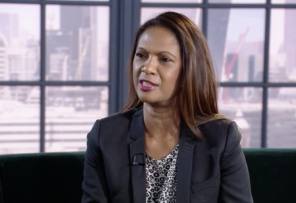
Christmas is just around the corner once again, and it always seems to bring a number of financial things to a head, one way and another.
This year, thanks to the recent considerable falls in the stock markets around the world, there is increasing hope of a Santa rally, which tends to sound like something we all should attend to have some fun, with lots of mulled wine and mince pies.
The FTSE 100 index fell from 7,510 to below 7,000 over the course of October, and at the time of writing was bouncing around at just above the 7,000 threshold. Other markets have not fared much better.
Over the equivalent period the Dow Jones Industrial Average fell from 26,828 to 24,442 – losing more than 800 points in a single day – and it remains very much closer to the latter than the former.
Yet one of the biggest losers of all was the Nasdaq, which at the beginning of October sat just above 8,025 points, but by last week had fallen to 6,908. The shift in fortune was partly attributed to rising bond yields, which had tempted some investors to leave the stock markets. But the spectre of President Donald Trump’s protectionist policies in the US, and the impact they were beginning to have on the wider world were also a factor.
The International Monetary Fund also warned that Mr Trump’s trade war with China and Europe would impact global growth, with the US, France, Germany and China bearing the brunt. This US protectionist policy does not look like changing any time soon, even though there is some evidence it is already harming US businesses.
Threat of Brexit
The biggest threat to Britain’s growth remains Brexit, and even though Prime Minister Theresa May has finally done a deal with the EU, the chances of it being voted through Parliament on December 11 look very slim indeed.
MPs on both Remain and Leave sides are not happy with what has been negotiated, but one thing that seems particularly strange is that even those who hammered out the deal, including former Brexit secretary Dominic Raab, are saying they do not agree with the deal and will vote against it.
The Bank of England’s forecasts last week did little to help Mrs May’s push to get her deal over the line, not least because there was a clear message that, in economic terms at least, the UK would be better off staying in the EU.
All other scenarios, including the prime minister’s deal, will leave the UK worse off, according to the BoE and Treasury figures.
In the worst-case scenario, with a “disorderly no-deal” Brexit, as BoE governor Mark Carney put it, the economy would lose 8 per cent and we would see house prices fall by around 30 per cent. Not bad you might think if you are a first-time buyer, but interest rates would need to rocket to combat inflation, making any borrowing potentially prohibitively costly.
Time will tell what will actually happen, but there is talk of a second referendum and also possibly a general election. We will just have to wait and see.
So, if Santa could bring something of a rally to markets over the Christmas period, and sort out the Brexit conundrum to everyone’s satisfaction, that would be a fabulous present to receive.
While the Santa rally is recognised as a real phenomenon in the markets, with a surge often seen from the beginning of December to the end of the year, whether we see one this year is largely in the hands of Mr Trump and the US Federal Reserve.
A change in the president’s trade policy would probably elicit one, but that is unlikely, although Mr Trump and Chinese President Xi Jinping met at the G-20 summit in Buenos Aires last week, so we may yet see a change of heart. But I suggest you do not hold your breath.
Cost of Christmas
Of course, it is not just at the macroeconomic level that we think about finances at Christmas, we need to consider the microeconomic level. For example, the average spend for each of us on Christmas is expected to be £719, according to figures from GoCompare, with presents for family and friends costing £365 alone.
More than half say they can foot this bill from their income, while 10 per cent will be using a credit card to fund the spend they cannot afford to meet from their salaries alone, and that simply increases the cost.
By January, the Christmas debt hangover will kick in, and while 43 per cent of people using a credit card for Christmas expect to have paid off the bill within the month, the average time to pay it off is expected to be 2.6 months.
By the time we reach Easter, most people will be free from their Christmas spending. However, even though you cannot control the macroeconomic picture, dealing with your micro one will help to stay in the black this year, and keeping your spending in check is likely to be a good idea given the level of economic uncertainty we all face. Merry Christmas.
Alison Steed is a freelance journalist




